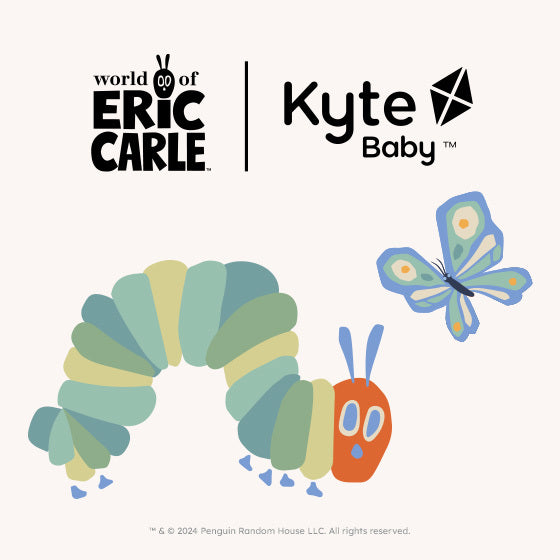Perhaps well-meaning friends and family have warned you of the upcoming sleepless nights you will have with a new baby. Do not let that intimidate you or scare you. Any sleep loss should be temporary, and you will have a sweet baby to cuddle with to make up for it!
We will go over all the baby sleep schedule questions you have, what age appropriate “schedules” look like and how to minimize some of those sleepless nights! We will cover all ages, but most importantly:
- Where do you start with a baby sleep schedule
- Baby sleep schedule 1 month
- 6 week old baby sleep schedule
- 7 week old baby sleep schedule
- Baby sleep schedule 2 months
- Baby sleep schedule 3 months
- Baby sleep schedule 4 months
- Baby sleep schedule chart
- How to get baby on a sleep schedule
We will also talk about normal sleep patterns, any regressions you might experience in that first year, how much sleep they need, and how to get off on the right foot with sleep! But first… will you ever sleep again? Of course!
Baby sleep is often erratic in the early days. They’ve spent 9+ months living in the dark. It is quite an adjustment to life on the outside. They will get there, but it will take some intentional work on your part to help them make that adjustment, specifically between days and nights.
Where Do You Start With a Baby Sleep Schedule?

First, we want to respect our child’s need for sleep as much as we respect our child’s need for food. Sleep is just as important for their overall development!
It is important to understand that while there is a range in how much sleep each individual baby needs, there are general guidelines that give you an idea. Much like growth curves/weight percentiles, each baby will fall somewhere on the curve. Some need a little more sleep, some need a little bit less. But the fact remains that they need sleep!
In general, this is how much sleep a baby needs each day.
- Newborn to 4 months: ~16+ hours
- 4-6 months: ~15 hours
- 6-9 months: ~14-15 hours
- 9-12 months: ~13-15 hours
- 12-18 months: ~13-14 hours
As you can see, they still need quite a bit of sleep in those first 12 months! The American Academy of Sleep Medicine has some official recommendations for the amount of baby sleep for optimal health.
How do you know if they are getting enough sleep? Look at their mood, look at how well they eat. Tired babies tend to be crankier and do not eat as well as well rested babies. Let that guide you. If you have a happy baby who is eating well, then they are probably getting enough sleep!
Another important aspect of how much sleep your baby needs and when they get that sleep, is baby's awake times. Depending on your babies age, they may need to be awake for longer than you think to take a good nap. If they are currently extending their wake times beyond the recommended window they could be overtired when it comes time for a nap. This varies from baby to baby so just use this as a guide and see if it works for your child.
Recommended Baby Awake Times are as follows:
- NB - 2 Months: up to 1 hour
- 3-4 months: 1.5 - 2 hours
- 5-6 months: 2 - 2.5 hours
- 7-9 months: 2.5 - 3 hours
- 10-12 months: 3 - 3.5 hours

Newborn Sleep Schedules
But first, a disclaimer: I do not believe any baby should be put on a strict sleeping schedule, much less a newborn. Your newborn baby did not read the manual, so do not expect them to stick to a picture perfect schedule from a book. So anything that is in here is just a general recommendation/guideline. Not the holy grail, and not something you need to force your child into.
Do not let this cause you more stress-- just let it be helpful to you in figuring out sleep for your little one! Newborns should eat on demand, however they become overstimulated very easily. Their awake time is very low in the first 8 weeks, ideally around 45-60 minutes including time to feed.
That does not leave room for a lot of other activities! Meet their basic needs like feeding, a clean diaper, cuddles, and back to sleep. Most newborns will need to eat every 2-3 hours during the day and maybe 3-4 hours during the night.
If you miss that sleep window, they become overtired and fussy, thus making it harder for them to settle for sleep. So it's important to know first how much newborns sleep. The next question should be: why does your newborn seemingly wake so frequently? See the reason is that newborns have very short sleep cycles. They do not stay in REM (deep) sleep for very long.
Eventually, their sleep cycle will resemble yours more meaning they will stay in deep sleep for longer periods of time. This is typically the 4 month sleep regression.
- A baby sleep schedule 1 month old may look something like:
- 6-8am wake up (this is a normal biological waking and is best if you can condition them to waking around that time to set their circadian rhythm)
- 4-5 (or more) naps
- 8-10pm bedtime
- Longest stretch of sleep: 2-4 hours (more if you are lucky)
Try to keep the awake windows short. Have a simple, flexible series of events that happen from morning wake up to bedtime. Something like change their diaper, feed them, hold them upright for some good burps, a little bit of tummy time, then swaddle them up with a swaddle blanket, turn on some loud white noise, and get them back to sleep.
Again, their sleep is very erratic which means it will feel like you’re in a constant eat, sleep, poop cycle. This is very normal-- recruit help and consider taking shifts with your partner! Also, it is worth mentioning that the awake time before bed is still the same as the awake time before naps: short! Do not keep them up during the day thinking they will sleep better at night.
That will typically backfire and you will have a very fussy baby, especially during the "witching hour." Fun fact: a nap is anywhere from 20 minutes to 2 hours. 6 week old baby sleep schedule, 7 week old baby sleep schedule and 2 month old baby sleep schedule are all pretty similar to the above, except they may be able to handle 10-15 minutes more of awake time before naps and bedtime. They are still eating and sleeping often! This is the age that you may opt for a dream feed.
Baby Sleep Schedule - 2 Months and 3 months
Around 8-12 weeks, your baby will begin producing melatonin, which means they are coming out of the day/night confusion and will begin having some predictability to their sleep, especially at night!
The best thing you can do before this point is provide cues for the difference between day and night. Since they are not producing sleep hormones, they have to take their cues from the environment and our routines. That means keeping it light during the day, dark during the night, and developing routines that signal sleep is coming. The only other rules for baby sleep at this age are related to safe sleep.
At 3 months old, your baby will begin to stay awake from 75-90 minutes at a time. This is where the “3 hour cycle” typically starts which means they sleep for 90 minutes and are awake for 90 minutes. Remember, not every baby will fall into that cycle! Some may nap for 30 minutes and others may nap for 2 hours. It is helpful to have learned sleepy cues at this age too.
Baby Sleep Schedule - 4 Months Old
This is when things start to get interesting because their sleep cycles are changing and maturing to adult sleep patterns (permanently.) This is also known as the 4 month sleep regression.
Where other regressions (or pro-gressions) are temporary, this one at 4 months is not. The effects of it may be temporary, but their sleep cycles have changed for good! You can see how sleep cycles are different and change from the National Sleep Foundation.
This is the age for the 4-3 nap transition, which means they will need to drop the last little cat nap at the end of the day and move to an earlier bedtime that is more in line with their circadian rhythm and new sleep cycles.
At this age, they are generally awake for 1.5-2 hours between each nap and bedtime. Remember, the awake time before bed does not need to be longer than the ones during the day! This often backfires and leads to an overtired, cranky baby who does not sleep well.
Is this the age when babies start to “sleep through the night?” It depends on what that means to your family, as I find that is an ambiguous phrase. You should know when should babies sleep through the night for more information about sleeping through the night!
The other big transitions that happen around this age is moving out of the swaddle because of rolling. So its important to know when does baby roll over begins. If you need a plan for how to transition out of the swaddle, I suggest being proactive and weaning the swaddle as opposed to waiting until they are actually rolling. This is when you can introduce a sleep bag to your little one! The longer they are swaddled, the higher the risk of SIDS, so not staying swaddled for too long, having a plan of action to begin weaning it, and having solid routines in place will all help the transition go more smooth!
This may also be the age that you start to implement some formal sleep training. You can read more about baby sleep training methods, or you can enlist the help of a sleep consultant if you are not sure what is right for your family.
Baby Sleep Schedule - 6 Months Old
Between 4-6 months, not a whole lot changes. They are still taking roughly 3 naps a day, with wake times around 2-2.5 hours long. They will probably vary throughout the day, shorter in the morning and a little longer before bedtime.
Sometimes you have a hard time fitting in 3 naps if your child is a good napper, but 2 naps may not be quite enough. In those cases, it is usually best to temporarily wake them from longer naps to fit in the third nap. I find that they handle the longer awake times needed for a 2 nap schedule when they are just a bit older.
However, that advice is not set in stone and your little one may transition to 2 naps earlier. As long as they are getting sufficient sleep, their night sleep is okay, and they are not cranky throughout the day then that should be how you judge if the sleep schedule is working for your little one!
A day for your little one may look something like:
- 6-7am wake up
- 9-10:15am nap
- 12:30-1:30pm nap
- 4-4:45pm nap
- 7:00pm bedtime
Feedings may have consolidated to 0-2 night feedings and 4-6 daytime feedings. You may have also introduced solids at this age too!
Baby Sleep Schedule - 8 to 10 Months Old
At this age, your little one has transitioned to 2 naps that are usually starting around 9-10am and 1-2pm. Bedtime will probably be around 7pm still, maybe a little later depending on what time your baby wakes up in the morning.
Remember that if your baby is not sleeping through the night at this point, that is okay! 0-1 feeding at night is totally normal. Every baby is unique and will have unique caloric needs. They will also have different sleep associations. So if your baby has a feed to sleep association, they may still wake more frequently at night to eat.
According to the National Sleep Foundation, the majority of 6-9 month olds are sleeping through the night without feedings. At this age, I recommend using wake times between 3-3.5 hours. That may look something like:
- 7:00am wake up
- 10-11:15am nap 1
- 2:30-4pm nap 2
- 7:30pm bedtime
Baby Sleep Schedule - 11 to 12 months old
This age can be tricky for sleep! Some kids are learning to walk which triggers that 12 month sleep regression. That means they may start to refuse naps in favor of practicing their new skill. Then that means parents may try to drop to 1 nap before their child is actually ready! This can lead to a disaster (meaning your child is overtired, cranky, taking short naps, and waking more at night). None of that sounds very fun.
For most cases, I suggest trying to get your awake times “maxed out” to 4/4/3 with 1 hour naps or some combination of that prior to transitioning to 1 nap. That will get them used to longer awake times and it will not be such a drastic change from 2-1 naps. The schedule while holding onto 2 naps may look something like:
- 7:00am wake up
- 11-12:00pm nap 1
- 4-5pm nap 2
- 8:00pm bedtime
Some other important takeaways:
- Yes, you may have to wake your baby up from naps!
- Not every kid will sleep 12 hours at night. Some may max out at 10 hours. Those kids will typically nap longer to get more sleep.
- Signs of nap transitions include refusing naps, having a hard time falling asleep for naps or bedtime, and unusual night wakings/early mornings
How to Get Baby on a Sleep Schedule?
First, do not feel like you have to get them on a strict, set, by the clock schedule. Second, I recommend seeing what time they naturally wake most mornings. That is likely their natural wake up time. If it varies a lot, then that can start to affect naps. So I suggest waking them within a 30 minute window each day. That will help to stabilize your first morning nap of the day! Which means it will potentially develop into a longer nap.
I also suggest looking at bedtime. Is there a time at night that they go to sleep well, sleep for longer stretches, and get the most night time sleep they are capable of? For instance, if your baby goes to sleep at 8pm and wakes at 6am but goes to bed at 7pm and wakes at 7am then I would try to get bedtime to happen around 7pm each night. That may mean manipulating naps to maximize their night sleep.
My next piece of advice is to not stress! Think of sleep “schedules” as an 80/20 rule. 80% of the time, you will do what you can to help them get the sleep they need and the other 20% of the time, there are no “rules.”
How Do You Have a Life and a Well-Rested Kid?
- Plan around naps. It is important to note that they will not always have multiple naps a day and a one nap day is much easier to plan around. It is a short season of needing multiple naps! If you have multiple nap schedules to work around, plan for at least 1 crib nap a day! It is helpful if it is the first nap or the second nap of the day in the crib.
- Plan for a car nap, stroller nap, or carrier nap if needed. Try to plan for that nap to happen at least close to their normal nap time. You can plan for the nap to happen when you leave the house, when you get to your destination, or whenever you head back home.
- Control the schedule: You can wake a sleeping baby, believe it or not. It is not my favorite thing in the world, but life happens.
So if you have to be somewhere at 10:30 and your child naps 9:30-11, I would do something like wake them 30 minutes earlier in the morning to shift the schedule or cut the nap to 30/45 minutes and let them nap longer for a different nap. Or use earlier bedtime if needed.
Now, if you really just can’t adjust and things are going to get off the rails for a full day event, here’s some tips for approved naps on the go!
- Aim for a normal-ish schedule: If your child is used to napping at 2 specific times of the day, shoot for within 15-30 minutes of normal nap time. All you need is a 30-45 minute nap to reset your child and help them make it through the day. That is easy enough, right?
- Set the mood: If you can, set up a sleeping space for them. If not, at least bring their lovey, sleep bag, and portable white noise. (We are big fans of the lectrofan micro!) I have stuck my phone in the pocket of our baby carrier for a nap when we’re out and about. It is a great sleep cue for little ones. The ring slings have a handy place for that!
- Take them to home for bedtime: Possibly a little earlier than normal and let them make up some sleep they missed from a busy day.
Keep in mind, it can take a few days to make up the sleep debt so keep it low key if you got really off schedule for the days following (like if you traveled for a few days and had multiple short nap days in a row).
Ultimately, these sleep “schedules” are just a suggestion. They should not be used to measure your child up against. It can be a helpful starting point if you are trying to get sleep on track, whether that is with naps or night time sleep.
Every baby’s sleep needs are different so try not to compare to another baby, whether they are taking longer naps, sleeping longer at night, or not staying awake as long as someone else’s child. You know your little one best, so keep in mind what to look for and make adjustments as needed based on what your child is telling you!


























